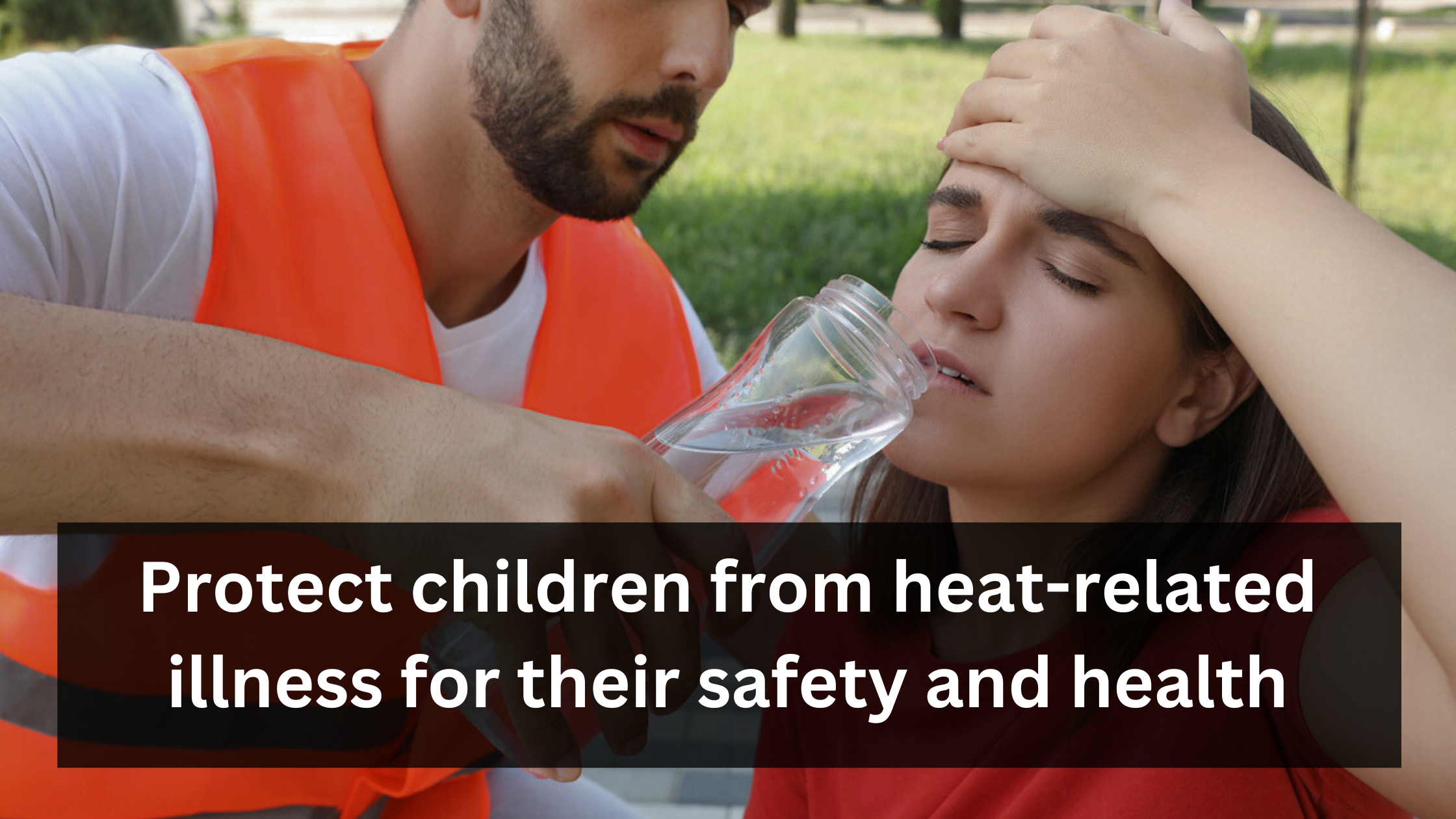Protect children from heat-related illness for their safety and health
A child’s physical and emotional well-being is typically improved in numerous ways when they play and exercise in the heat outside. On the other hand, the National Weather Service states that a heat index of 90°F or more presents a serious health danger.
There are numerous ways that high temperatures and intense heat can make kids sick very rapidly. Dehydration, heat exhaustion, cramps, and heat stroke—a medical emergency—can all result from it. Everyone can become crankier in the high heat. And because of climate change, there will be more intense heatwaves in some parts of the United States, which can lead to “eco-anxiety” and emotional anguish.
Take precautions to shield your kids from harmful Eat as much as you can, keep an eye out for any signs of heat illness, and contact your physician if you do. Keeping cool when it’s really hot. It makes most sense to stay indoors and work on crafts, read, or play board games during really hot weather, or to spend a short while at the beach or swimming pool.
If you know there will be multiple days of intense heat in a succession, make plans in advance. Try to come up with inventive ways to get youngsters to rotate their activities so they don’t get “cabin fever” or become agitated and restless. Encourage children to be active by suggesting simple yoga poses, indoor hide-and-seek games, or making up easy-to-achieve physical tasks.
What to do in the event that your air conditioning fails
Look for a neighboring building with air conditioning if yours doesn’t. Shopping centers and libraries make excellent places to escape the heat.
Find a safe place for your family to escape during periods of extreme heat if you live in an area where power outages occur frequently or your air conditioning system isn’t functioning consistently. For individuals who require escape from the heat, several towns and localities provide cooling centers located in gyms or other sizable buildings.
Advice on surviving the heat
There are a few things you can do if you plan to go outside to combat the heat and shield your kids from heat-related illnesses and dangers:
Wear light clothes: Darker clothing usually offers somewhat better protection against sun damage to skin; light-colored clothing can assist kids stay cool and minimize heat stress from excessive heat absorption. Additionally, make an effort to wear loose-fitting apparel that, ideally, provides sufficient ventilation as well as shade from the sun. Kids perspire less than adults do, therefore clothing with only one layer of absorbent material can aid increase perspiration evaporation, which has a cooling impact. Make sure you apply a lot of sunscreen.
Allocate more time for rest: The heat frequently causes fatigue in kids and adults alike. In addition to making people feel exhausted, high heat can also make them more irritable. Regularly go inside to rest, chill yourself, and sip water.
Use water to relieve your heat: Give your kids a cold bath or a spray of water to help them cool off if they’re feeling hot. Another excellent method to stay active and cool off is to go swimming. Recall that in order to prevent drowning, children should always be monitored when swimming or playing in the water.
Never leave your youngster unattended in a car: even with the windows open, a car’s interior can get dangerously hot very quickly.
The current heat wave has passed, but another one is on the horizon, increasing the chance of heat-related ailments. Although being young and physically fit may seem to protect against these illnesses, Amy Skaria, MD, an assistant professor of clinical pediatrics in primary care and rehabilitation medicine, argues that children and young athletes who play sports requiring heavy equipment or who may simply not know when to take a break, are actually more vulnerable than adults in extreme heat. Children’s bodies do not dissipate heat as well as adults’ since they sweat less overall due to a lesser sweating capacity than adults, according to Dr. Skaria.
In addition, kids and teenagers frequently play or work out in hot, muggy weather without taking breaks or consuming adequate fluids. According to Dr. Skaria, “our bodies acclimate to the heat over time by making physiologic changes when exposed to warmer environments.” Our ability to tolerate heat and our chance of developing heat-related illnesses are greatly enhanced by this process of heat acclimatization. Children are more susceptible to heat-related illnesses because they require almost twice as long to acclimate to heat as adults do, the author continues. Children who are overweight, have long-term medical conditions, or use particular medications are more vulnerable to heat-related illnesses.
Preventing heat-related illnesses
Increasing the length and intensity of outdoor activities gradually is one of the best strategies to avoid heat-related illnesses. Children and teenagers who may be overweight (BMI over 25) or out of shape should pay particular attention to this.
While children’s mental and physical health benefit greatly from outside play and exercise, Dr. Skaria suggests staying inside when the heat index rises beyond 90 degrees. Spending time outside in the early mornings or late at night can help avoid heat-related illnesses throughout the warmer months, according to her.
Lastly, she exhorts coaches and caretakers to:
- To maintain a normal body temperature, teach kids to take regular rests and to drink lots of water both before and after an activity.
- Establish designated times to drink water and escape the heat.
- Every fifteen minutes, take them indoors to a cool, shaded spot to drink water.
- Give kids clothes that are breathable and light.
Read More: Fiber Feast: Nourishing Your Body with Fiber-Rich Foods












